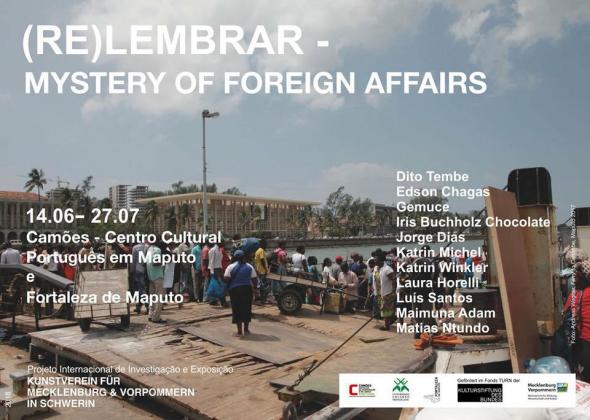Critical Interventions Special Issue on: Emerging Platforms for Artistic Production in DRC, Angola, and Mozambique, Fall 2013.
Critical Interventions invites submissions for Emerging Platforms for Artistic Production in DRC, Angola, and Mozambique, an issue that examines recent developments in arts institutions, their
administrative infrastructures, and creative practices in the DRC, Angola and Mozambique. These countries’ political and cultural profiles and influences have changed dramatically with expanding
global demand for minerals and oil. Linguistically and geographically tied to older categorizations (i.e., Lusophone, Central, and Southern Africa), there are new alliances forming among these nations as well
as with ascending cultural players, like Brazil and China. As a result of these engagements, new artistic platforms are constantly emerging: archives, state-funded spaces, independent spaces and workshops, a shifting and expanding pool of global funds for exhibitions, museums, programs, and scholarly engagement.
This issue of Critical Interventions will explore the changing and evolving relationships between artists, the state, and the local and global art markets, and particularly recent scenarios of art platforms as extensions and articulations of state, private, and individual power. We invite contributions that consider the formation and activities of these networks across media in the visual and performative arts. We are also interested in the processes of formation and politics of new artistic networks, and curatorial and exhibition strategies. Writing and work by artists, curators,
scholars, activists and other observers, particularly those working on the continent, are sought.
We invite proposals to be submitted by 15 July 2012. The deadline for the final version of the paper is 30 January 2013. Proposal for articles should be no more than 400 words. Articles should be based on
original research, which is previously unpublished and may be up to 10,000 words inclusive of the bibliography and contain up to ten images. All rights for reproduction of images must be cleared in
advance and submitted along with the final draft of each article.
Editors: Erin Haney and Drew Thompson
Proposals of no more than 400 words should be sent to:
Erin Haney erinlhaney@gmail.com and Drew Thompson thom2429@umn.edu.
Critical Interventions, a peer-reviewed journal, provides a forum for advanced research and writing on global African arts that investigates African and African Diaspora identities in the age of globalization,
as an arena for rethinking African art history and interrogating the value of African art/cultural knowledge in the global economy. The journal inaugurates a formal discourse on the aesthetics, politics and economics of African cultural patrimony as it affects African ownership of the intellectual property rights of its indigenous systems of knowledge and cultural practices.
H-AfrArts
H-Net Network for African Expressive Culture
E -Mail: H-AFRARTS@H-NET.MSU.EDU
web

